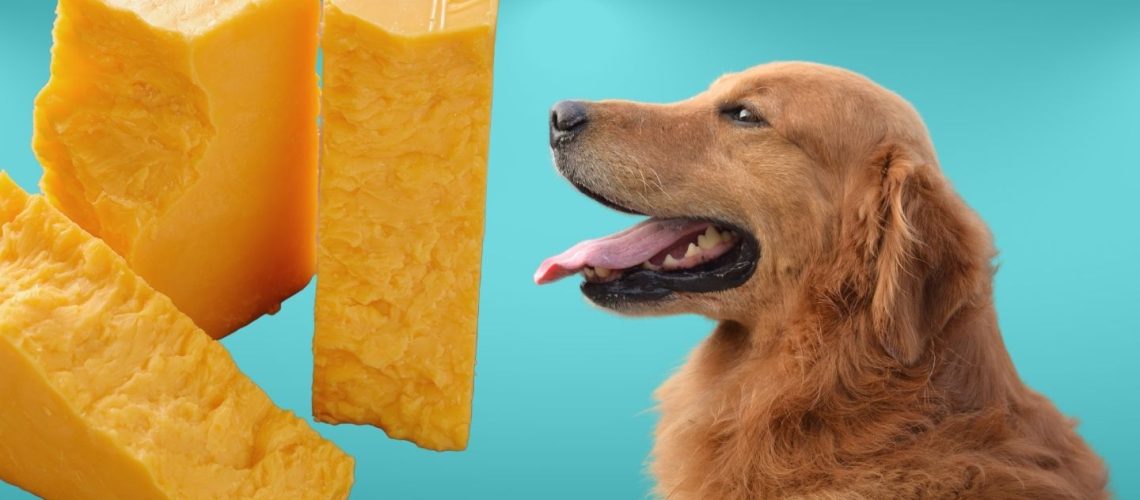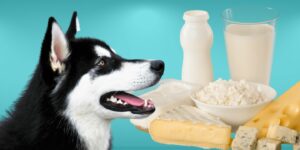In short, dogs can eat cheddar cheese in moderation as it can be a tasty treat that provides additional protein and calcium. However, due to its high fat and calorie content, cheese should only make up a small portion of a dog's diet. Be cautious of potential lactose intolerance in dogs and consider alternative low-fat or non-dairy cheese options.
Nutritional Content of Cheddar Cheese
Protein
Cheese is a good source of protein, which is important for maintaining strong muscles in dogs.
Calcium
Calcium is essential for maintaining healthy bones and teeth in dogs. Cheddar cheese can provide a good amount of calcium.
Fat
Cheese is high in fat, which is why it should be fed to dogs in moderation to avoid weight gain and other health issues.
Calories
Cheddar cheese is also high in calories, which can contribute to weight gain if consumed in large quantities.
Lactose Intolerance in Dogs
Signs of lactose intolerance
Some dogs may be lactose intolerant, experiencing digestive issues such as diarrhea, gas, or bloating after ingesting dairy products.
How to determine if your dog is lactose intolerant
If you suspect that your dog may be lactose intolerant, consult with your veterinarian for proper testing and guidance.
Potential Health Concerns of Feeding Dogs Cheese
Weight gain
Feeding dogs cheese in large amounts or too frequently can lead to weight gain and obesity-related health issues.
Pancreatitis
High-fat foods like cheese can trigger pancreatitis in dogs, a painful and potentially life-threatening condition.
Allergies
Some dogs are allergic to dairy products, which can cause skin issues, itching, or gastrointestinal problems.
Salt content
Cheddar cheese contains salt, which can be harmful to dogs if ingested in large amounts.
Safe Cheese Alternatives for Dogs
Low-fat cheese options
To minimize health risks, opt for low-fat cheese options like mozzarella or cottage cheese.
Non-dairy cheese alternatives
Vegan or plant-based cheeses are available for dogs with lactose intolerance or dairy allergies.
Tips for Feeding Cheese to Dogs
Start with small amounts
Introduce cheese to your dog's diet in tiny portions to monitor for any adverse reactions.
Monitor for any adverse reactions
Keep an eye on your dog after feeding them cheese, noting any signs of lactose intolerance, allergies, or other health issues.
Avoid feeding cheese with added ingredients or spices
These can be potentially harmful to dogs. Stick to plain, unseasoned cheese.
Combine cheese with other healthy treats for variety
Mix cheese with fruits, vegetables, or dog biscuits to create a balanced and exciting treat.
Expert Opinions and Advice
Veterinarians' recommendations on feeding cheese to dogs
Always consult with your veterinarian before introducing cheese or any new food to your dog's diet.
Research on the effects of cheese on dogs' health
Further research is needed to fully understand the impact of cheese on dogs' health, but moderation is key.
Real-life Experiences: Pet Owners Share Their Stories
Success stories of dogs enjoying cheese as a treat
Many dog owners have used cheese as a successful training treat or occasional indulgence for their pets.
Cautionary tales of dogs experiencing health issues due to cheese
Others have shared stories of their dogs experiencing digestive issues, allergies, or other health problems due to cheese consumption.
Frequently Asked Questions
Can puppies eat cheddar cheese?
While puppies may enjoy cheese, it's best to consult with your vet before introducing it to their diet.
Can dogs eat other types of cheese?
It depends on the individual dog and cheese type. Always introduce any new foods slowly and in moderation.
How often can I give my dog cheese?
As an occasional treat, dogs can have cheese a few times a week, depending on their size and dietary needs.
Can dogs eat cheese-based products like cheese puffs or cheesecake?
It is best to avoid processed cheese products, as they often contain additional unhealthy ingredients.
Summary
Key takeaways on feeding cheddar cheese to dogs
Dogs can eat cheddar cheese in moderation, but it's important to be mindful of the risks and monitor for any adverse reactions. Low-fat and non-dairy cheese alternatives are available for healthier options.
Final thoughts on including cheese in a dog's diet
While cheese can be a tasty and nutritious treat for dogs, always consult with your vet, observe your pet for any adverse reactions, and practice moderation to ensure their health and wellbeing.











